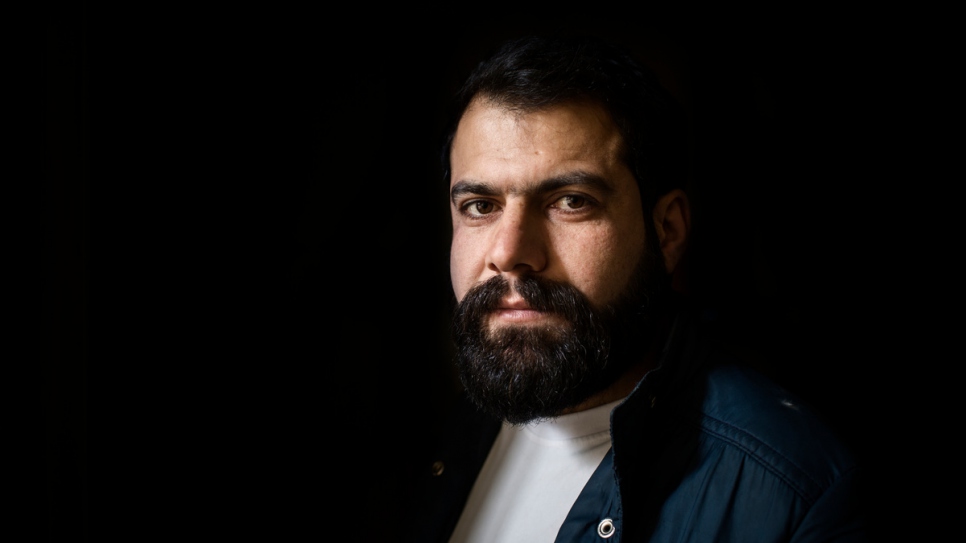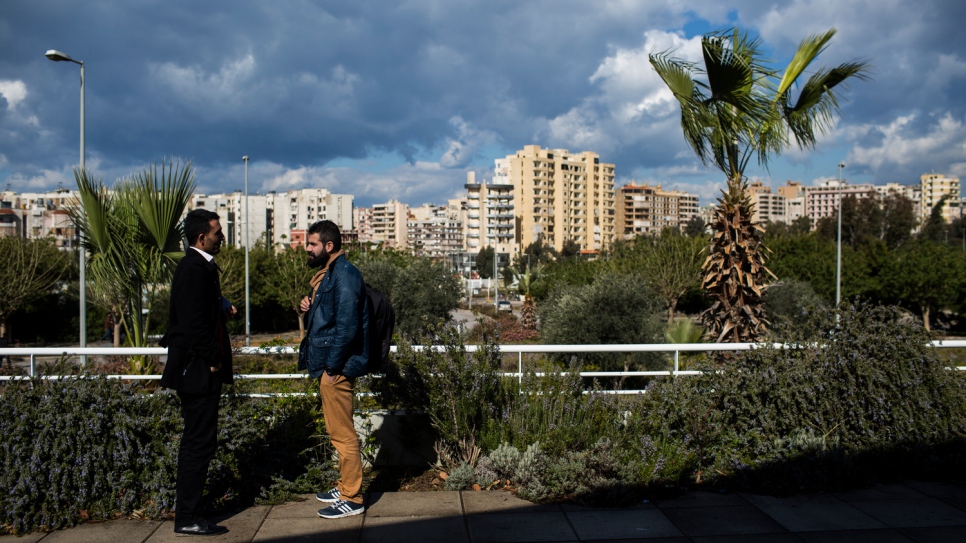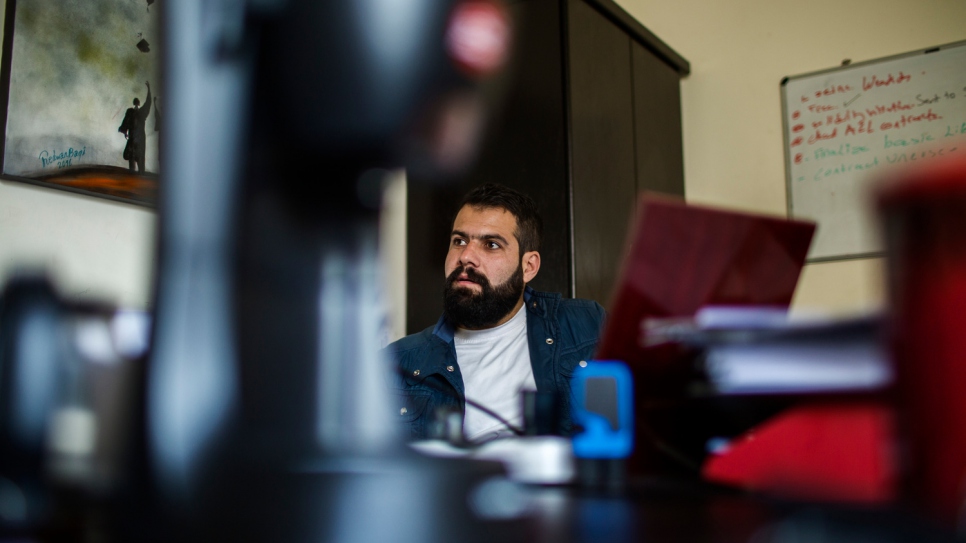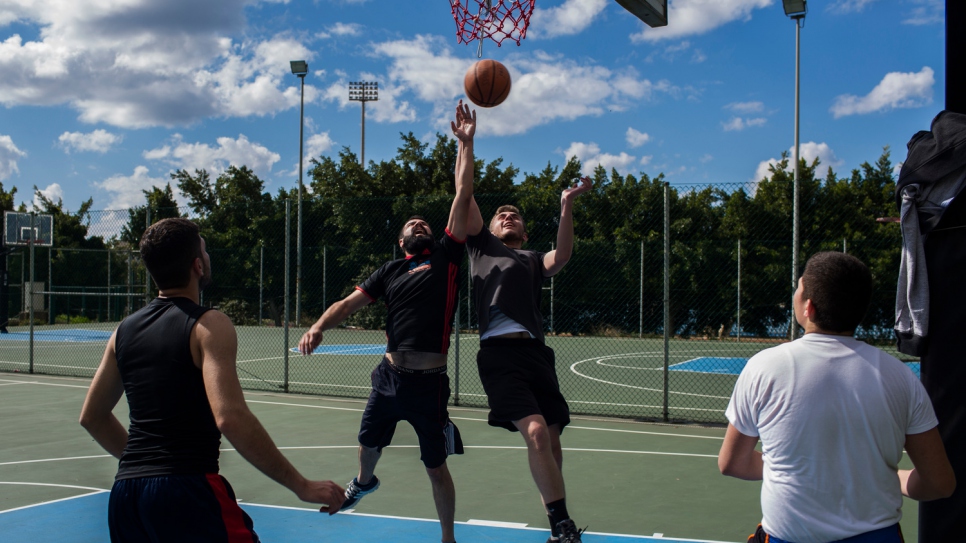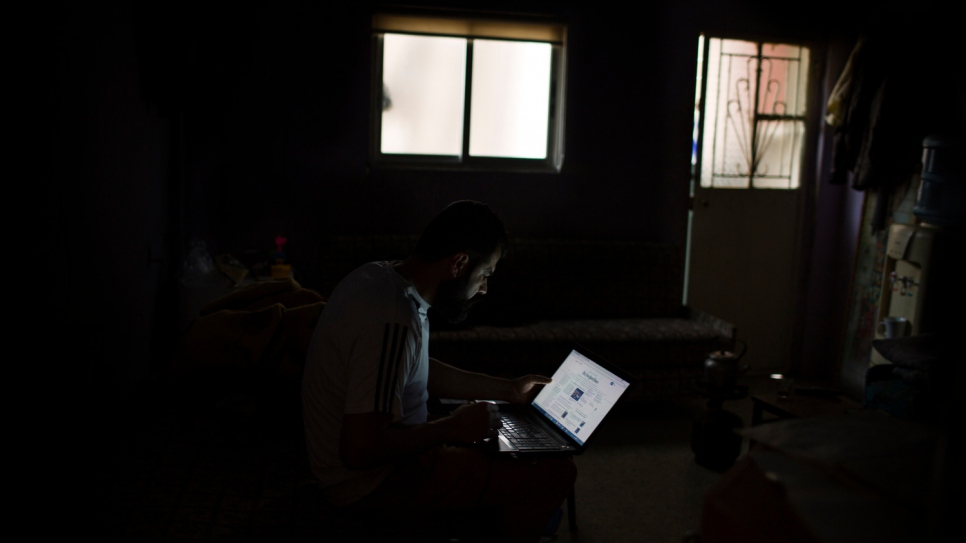Syrian refugees face tough odds in quest for higher education
Despite the assistance of UNHCR's DAFI scholarship programme in Lebanon, Syrian refugees in higher education are the exception to the rule.
Syrian refugee student Jankidar, 31, reads a book at his home in Beirut, Lebanon.
© UNHCR/ UNHCR/Diego Ibarra Sánchez
As a high school student in Syria, Jankidar knew that he wanted to study political sciences. But soon after enrolling in Aleppo University, he had to drop out to support his family.
Then, when war broke out in Syria in 2011, he was forced to flee his hometown of Kobane for Lebanon, where he tried once again to get a university degree – this time juggling four jobs to pay for his tuition and make ends meet.
“I worked in elevator maintenance, as a porter, and painter, and as an extra on Lebanese and Syrian films and TV shows,” he recalls.
The 31-year-old’s struggle to get a college degree is all-too-common among Syrian refugees in Lebanon, only one-in-eight of whom manage to enroll in further education.
Then in 2015, he learned about UNHCR, the UN Refugee Agency’s higher education scholarship programme, known as DAFI. He applied, and soon after overcame the long odds to win a full scholarship to study for a Master’s in Political and Administrative Sciences at Lebanese University.
Only one-in-eight of the Syrian refugees in Lebanon manage to enroll in further education.
Since its inception in 1992, the DAFI programme has grown considerably, enabling over 2,240 refugee students annually to study at universities and colleges in 41 countries of asylum in 2014. In Lebanon, 315 students are currently benefiting from the scholarships.
But for most young refugees the hurdles to accessing higher education remain formidable. When Syrian student Mariam, 23, fled Damascus four years ago, she already had a baccalaureate in science under her belt and firm plans to continue her studies upon her return to Syria.
“I was convinced that we were not going to stay in Lebanon for more than 15 days, a month at most,” says Mariam. “But those who left the neighbourhood were soon forbidden from re-entering it, the whole area was besieged.”
Mariam spent the next two years in Lebanon giving private tuition to two school children. “My father is disabled and my mother could not find a job. I was too worried about my family and could not afford to study and work at the same time.”
Worldwide, more than 65 million people are currently uprooted by wars and persecution, including more than 21 million refugees, more than half of whom are children. According to a UNHCR report, only 50 per cent are enrolled in primary school, 22 per cent in secondary, and one per cent in tertiary education.
In Lebanon, over a third of DAFI beneficiaries have said that they do not have time to study due to pressure at home to work and support their families, according to a 2016 assessment.
Mariam never gave up on her dream of a college education. One year into her stay in Lebanon, she realized that to be able to apply to universities, she needed to retrieve her baccalaureate certificate from Damascus – something she had not considered when she and her family fled Syria.
“I did everything I could to have a relative get my certificate, but to no avail. It was stuck at Damascus University where I initially enrolled and needed a governmental decision to be released.”
Agatha Abi Aad, an assistant education officer with UNHCR, explains that the lack of administrative documents, including education certificates from prior studies, is one of the many hurdles facing Syrian youths who wish to enrol in university.
“The universities now issue a paper upon registration, before official enrolment, that helps students obtain temporary residency, which is a key requirement for university enrolment. But the majority of refugees in Lebanon are unable to pay the yearly renewal fee of US$200,” says Abi Aad.
“I am helping Syrian children because I fear they might not get another chance to get an education."
The Government of Lebanon last month announced that Syrian refugees registered with UNHCR can now renew their residency permits free of charge – a change warmly welcome by refugees as well as by UNHCR, which has long advocated for the waiver of renewal fees.
When Mariam learned about DAFI in 2015, she immediately applied and got selected. She hired a lawyer with the help of a distant relative still living in Syria and managed to get a copy of her baccalaureate certificate. She meticulously followed the necessary steps to register at Lebanese University. She endorsed her certificate at the Ministry of Foreign Affairs, and headed to the Ministry of Education to get the equivalence.
“No valid residency means no equivalence,” the clerk told her. At that moment, Mariam felt like she had hit a brick wall. “I had to pay US$600 in fines for having overstayed my residency,” she said. Mariam is hoping that the most recent policy change will allow her to pursue her dream and continue her education.
She now volunteers as a teacher for Syrian children with Save the Children. “I am helping Syrian children now because I fear they might not get another chance to get an education,” she explains.
For now, though, Mariam’s dream of continuing her own education remains on hold.

